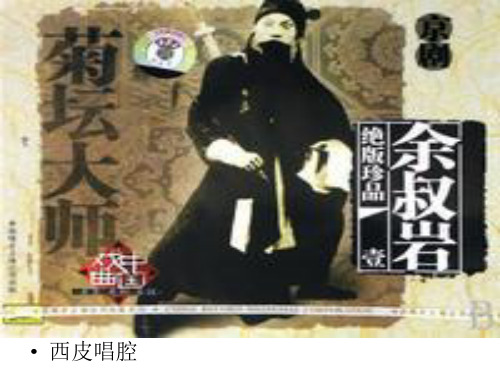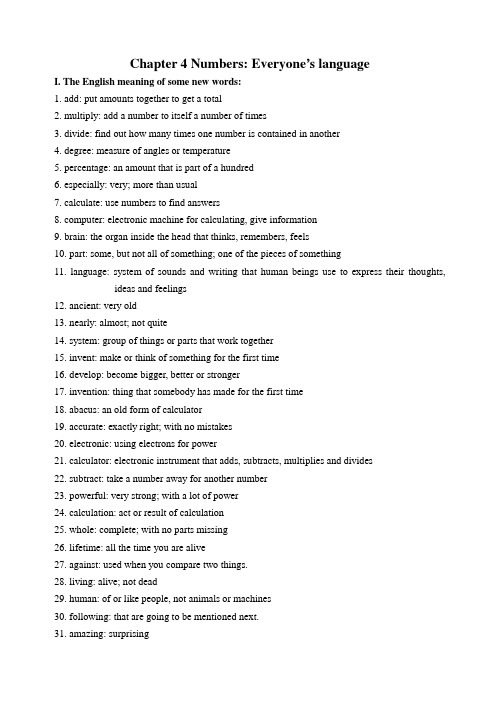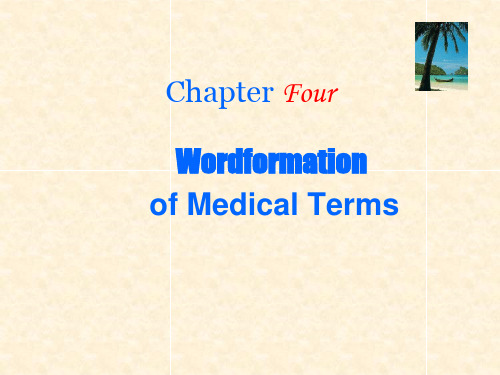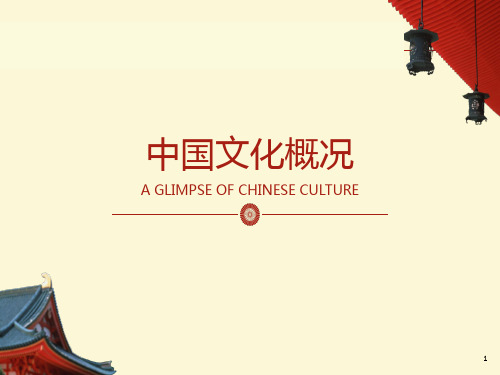Chapter 4(自制)
- 格式:ppt
- 大小:277.50 KB
- 文档页数:37



Chapter 4 Numbers: Everyone’s languageI. The English meaning of some new words:1. add: put amounts together to get a total2. multiply: add a number to itself a number of times3. divide: find out how many times one number is contained in another4. degree: measure of angles or temperature5. percentage: an amount that is part of a hundred6. especially: very; more than usual7. calculate: use numbers to find answers8. computer: electronic machine for calculating, give information9. brain: the organ inside the head that thinks, remembers, feels10. part: some, but not all of something; one of the pieces of something11. language: system of sounds and writing that human beings use to express their thoughts,ideas and feelings12. ancient: very old13. nearly: almost; not quite14. system: group of things or parts that work together15. invent: make or think of something for the first time16. develop: become bigger, better or stronger17. invention: thing that somebody has made for the first time18. abacus: an old form of calculator19. accurate: exactly right; with no mistakes20. electronic: using electrons for power21. calculator: electronic instrument that adds, subtracts, multiplies and divides22. subtract: take a number away for another number23. powerful: very strong; with a lot of power24. calculation: act or result of calculation25. whole: complete; with no parts missing26. lifetime: all the time you are alive27. against: used when you compare two things.28. living: alive; not dead29. human: of or like people, not animals or machines30. following: that are going to be mentioned next.31. amazing: surprising32. solve: find the answer to a question, problem or puzzle33. lightning: sudden bright light in the sky when there is a storm34. program: give a computer, etc. a set of instructions to make it work on a special task.35. power: what makes things work; energy36. complete: make something wholeII. Language points:Reading1. count v. 数数countable adj. 可数的uncountable adj. 不可数的countless adj. 无数的,数不清的2. said nothing=didn’t say anything 没有说什么2. in our daily life 在我们的日常生活中3. an international language 国际通用的语言4. a decimal number 小数5. a pair of odd/even numbers 一对奇数odd adj. 奇数的;不能被2除尽的;奇怪的=strange6. a pair of even numbers 一对偶数even adj. 偶数的;均衡的;平坦的7. a fraction 分数8. add:plus 加add to 增加了……add…to…在……加上add up to 加起来总共addition n. 加;加法in addition (to) 除……之外(还有)9. subtract:minus 减subtract…from…从……减去… subtraction n. 减法subtractive adj.减去的,有负号的,负的10. multiply…by…在….上乘以…multiplied by 乘以multiplication n. 乘法multiplicative adj. 增加的,乘法的110. divide…by…divided by 除以be divided into 被分成12. a number showing degrees 表示角度的数13. a percentage 百分数percent percentage14. different ways of writing numbers = different ways to write numbers不同的写数字的方法15. an especially important number 一个尤其重要的数字especial adj. 特别的16. make it easier for us to calculate 使得我们计算起来更容易it 形式宾语17. an important part of ………一个重要的部分18. at least 至少,无论如何;不管怎样at most 至多;最多19. his or her own language 他或她自己的语言everyone’s language 大家共同的语言203. the international language of numbers 国际通用的数字语言21. in ancient times 古时候;从前=long ago=long, long ago=once upon a timeancient 反:modern times近:age22. in many different ways 用许多不同的方法in 用way 方法同义词:methodin this/that/these/those way(s) in the way23. as these pictures of the number 6 show 正如这些图片中的数字6所示24. in the same way 用相同的方法25. count in tens用使进制计算26. Greek n. 希腊人;希腊语adj. 希腊人的;希腊的;希腊语的Greece n. 希腊27. Roman n. 罗马人adj. 罗马(人)的Rome n. 罗马28. Egyptian n.埃及人adj. 埃及(人)的Egypt n. 埃及29. the system of numbers 数字系统30. nearly 近义词almost adv. 几乎almost可以和no, none, never 以及nothing等不定代词连用,而nearly则不可;nearly常用在含有not的否定句中,而almost则不可与not 单独连用。



Chapter 4 The 15th century (1400 –1550) 一.Historical background1. The Hundred Years’War (1337 –1453)Henry VI--a puppetFrench heroine Joan of ArcIn 1453, all English territory in France was lost to the French only Calais to English king2. The War of the Roses (1455 –1485)a series of civil wars fought between the two great families, both of which claimed the right to the English throne. All noble families were involved in it.The House of Lancaster-red roseThe House of York - white roseResult:Henry Tudor (VII) married Elizabeth of the House of York -brought compromise between the two familiesand established a highly consolidated rule.3. The discovery of America and the new sea routes1)Christopher Columbus, 1492, landed in America2)Vascoda Gama, 1497, round the tip of Africa and reached India3)John Cabot and his son Sebastian, 1498, provided the basis for the English claim to North America4. Reformation of the churchHenry VIII took decisive measure to break away from the Church of Rome.1534---He passed the Act of Supremacy: as the supreme head on earth, thus the Anglican Church was founded二.Ballads1.The basic characteristics of ballads1)The beginning is often abrupt: without any introduction of the characters and the background of the tale2)There are strong dramatic elements: single episode, climax, intensity and immediacy3)The story is often told through dialogue and action4)The theme is often tragic, though there are a umber of comic ballads 5)The ballad meter is used: four-line stanzasodd numbered lines with 4 feet eacheven numbered lines with 3 feet each2.Subject matter of the balladsEnglish ballads: the Robin Hood balladswar ballad, bloodshed ballad, superstition ballad, domestic affairs, outlawry, love, sea, and border ballad.3.Collections of balladsBishop Thomas Percy,Reliques of Ancient English PoetryProfessor F. J. Child, English and Scottish Ballads三.Literature in the 15th century1. Popular BalladsReview the definition and the main feature of ballads2. Sir Thomas Malory (1405 –1471)1)The Death of Arthur: complied together the stories of King Arthur and the Knights of the Round Table2)contribution to the development of English prose3)left a legacy to later writers that many of them used as subject matter in their writing3. Early English playsancient Greece and Rome, drama was a form of entertainmentroman catholic church prohibited it9th and 10th century allowed only for religious services14th century developed into 2 kindsMystery plays -are chiefly based on stories form the BibleMiracle plays -are on the lives of Christian saints Homework: What are the basic characteristics of ballads?。